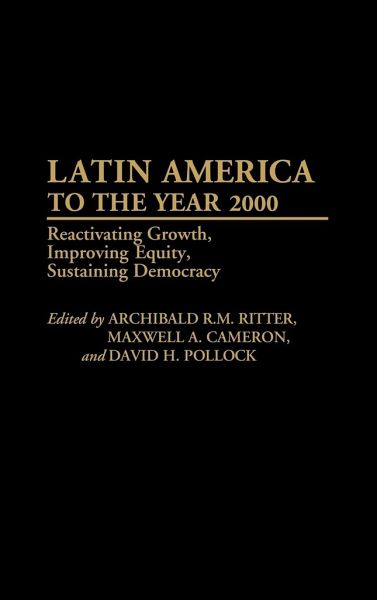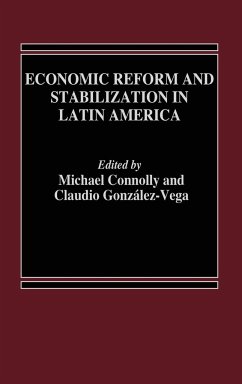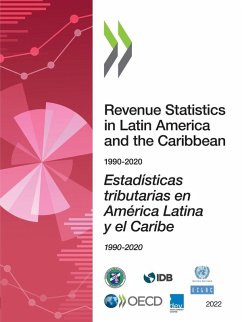
Latin America to the Year 2000
Reactivating Growth, Improving Equity, Sustaining Democracy
Herausgeber: Ritter, Archibald R. M.; Pollock, David H.; Cameron, Maxwell A.
Versandkostenfrei!
Versandfertig in 1-2 Wochen
88,99 €
inkl. MwSt.

PAYBACK Punkte
44 °P sammeln!
Can the experience of the 1980s in Latin America be analyzed and evaluated to shed light on prospects for the 1990s? The central objective of this volume is to survey the development experience of the Latin American region in the 1980s and explore prospects for the coming decade. In this context, themes of crucial importance for the region are examined, including democratic consolidation, income distribution, the environment, hyperinflation, and the debt problem. Although socioeconomic and political aspects are emphasized, issues of equity and the environment are of special importance. Case st...
Can the experience of the 1980s in Latin America be analyzed and evaluated to shed light on prospects for the 1990s? The central objective of this volume is to survey the development experience of the Latin American region in the 1980s and explore prospects for the coming decade. In this context, themes of crucial importance for the region are examined, including democratic consolidation, income distribution, the environment, hyperinflation, and the debt problem. Although socioeconomic and political aspects are emphasized, issues of equity and the environment are of special importance. Case studies of Peru, Chile, Mexico, Argentina, and Cuba provide fresh information on these issues in specific countries. The book focuses on the problem of development at a critical juncture in the evolution of the region. Not surprisingly, the contributors express differing points of view, but have in common the sense of the urgency of development problems that face Latin America. Central issues concerning the region's economy are the focus in the first part of the book. In the second part, key issue areas for the future are discussed. Of central concern in an exploration of the prospects for Latin America is the sustainability and improvement of democratization which proceeded in the 1980s. On the whole, the authors are not optimistic. The immense economic difficulties faced by the region--the debt overhang, the large and continuing overflow of financial and real resources, hyperinflation in some countries--will not be easy to manage. Although there are no guarantees that income distribution will be improved, among the positive developments foreseen for the 1990s are improved economic management, the addressing of environmental issues, and greater attention to issues of women's rights. This book should serve as a useful and timely guide to a complex region for both students and policymakers.












